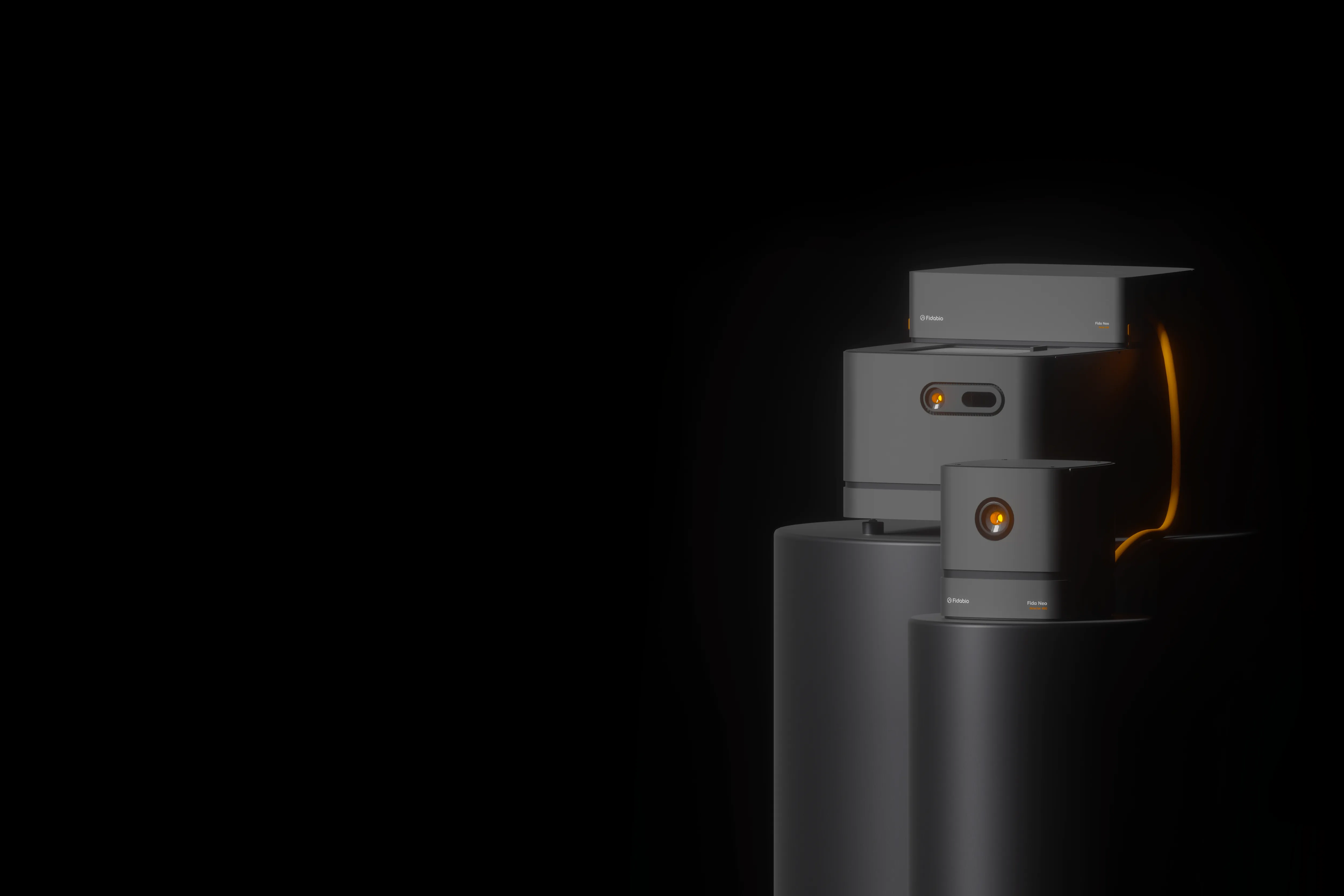Flow Induced
Dispersion Analysis
Over 10 Essential Biophysical Parameters Delivered by 1 Technology in 1 Assay


.png)
















.png)
.png)
.png)
.png)

.png)

%201%402x%20(1).png)






















Answer all biophysics questions with a single technology.
Introducing Fida Neo
-min.webp)
FIDA in Numbers
available: 480 nm, 640 nm or 280 nm LED



In comparison to SPR, it (FIDA) is a simple system that you can run without expertise. It does not require an experienced operator to run the system, due to its ease of use. A wide range of buffers can be used, meaning that optimization is kept to a minimum. The software generates an evaluation report of the quality parameters with just a click of a button. (...) We were able to confirm the performance by evaluating in-house compounds using the demo instrument on site.

This methodology is very sensitive and useful for assessing binding in a quantitative manner using small amounts of auto-fluorescent proteins. Using this method, we can observe clear changes in apparent hydrodynamic radius (Rh) and in fluorescence signal of EYA1 as a function of increasing concentrations of peptides or of small molecules

''Fida Instrument provides a ''ruler'' to measure the length of fibrils''

''The FIDA is very effective for screening small molecules for solubility and interactions with protein targets. A major advantage has been its ability to clearly show drug binding to difficult-to-work-with targets such as intrinsically disordered proteins and amyloids''

I would say that this instrument is quite useful for core facilities at KI or for Swedish research community in general:
- it was possible to measure unlabeled membrane proteins and soluble proteins at low concentrations in small volumes very fast (~6 minutes per measurement).
- I also like the temperature control and the autosampler which allowed us to run a lot of samples overnight.
- I would say that there is a lot of potential to perform other assays as well, such as the Kd determinations etc. (For this, I use ITC which is quite time-consuming and requires a lot of protein).
- In addition, the software and user interface for sample runs and data analysis is quite straightforward and intuitive to use.

"What we value about FIDA is the amount of information we can get from a tiny amount of protein in a single QC run. FIDA technology enables us to understand our proteins better - particularly when they behave in unexpected ways. We chose FIDA because it gives us that vital first result quickly - we don't waste our time optimising an assay that isn't going to work."

"I am convinced. I have never before been able to detect the ternary construct formation of my construct directly in cell lysate – it took less than two hours."

"The Fida 1’s unique capability for measuring binding Kd from weak mM level to strong pM level really enhances our bioanalytical capabilities."

"FIDA is an in-solution technique, and thus an ideal binding assay for structurally diverse bsAbs because the analysis does not rely on potentially obstructive surface immobilization and hence it is able to perform characterizations that are unbiased by bsAb format and spatial orientation of the binding domains."

"After thorough comparisons, it was clear that the Fida 1, amongst others, presents unique opportunities in analysis of membrane proteins, which is essential to us."

''The Fida 1 system offers a new approach to detergent screening that has significant advantages allowing essential data to be obtained faster using less material (…) this work presents a new approach to characterize membrane proteins that allows users to reducing costs and time as well as to analyze protein expressed at low levels in a short time thus overcoming any stability issues.''

"I like the ease of use and the straightforward data analysis and, that experiments can be performed in any type of buffers. We get data, where no other biophysical methods worked before."

"The method is easy to setup in any standard laboratory and can be adopted for a high throughput (HTTP) screening, which enabled mechanistic studies of RNA nuclease interactions, as well as efficient guide RNA lead discovery (…) Fida 1 offers straightforward assay development, walk away automation, absolute measurement and ultra low sample consumption."

"FIDA provides in-depth assessment of activity combined with local and global protein structural changes by measuring the overall hydrodynamic radius of the protein with minimal sample consumption. In addition, it is possible to measure the affinity constant for the analyzed interaction."

"The beauty of Fida 1 is that it allows us to conduct a lot of biophysical measurements in one system using a small amount of reagent and a rapid read-out time which is important for our projects and to our customers. (…) Providing a high-quality, protein characterisation QC package is certainly extending and future proofing our capabilities in biophysical characterisation of the proteins we produce."

"The Fida 1 has allowed us to assess the performance of MIPs with a much higher throughput than was previously possible on other platforms. MIPs can be developed in as little as 8 weeks, which is a significant improvement on antibodies, and now they can be fully characterized at an accelerated pace too."

"Fida 1 can be used for full characterization of ternary complex formation for targeted protein degradation. The Fida 1 platform only consumes 39 nL of sample for one measurement and thus allows elaborate condition screening using very small amounts of sample material."

"The Fida1 is a very user-friendly system. With the Fida software we can quickly design new methods, set up experiments, and analyze data. By far this is a great instrument and technology that has allowed us to run binding assays for LNP in solution and with flexibility to run in any complex media which we were unable to do using traditional binding methods that required ligand immobilization. The FidaBio customer service is amazing, they are very knowledgeable and responsive whenever I run into issues and need assistance. I highly recommend this instrument for LNP or any other nanoparticle characterization. The system and technology are versatile with applications beyond nanoparticles and is a must in the biophysical tool kit."

"Eventually, with FIDA, we managed to characterise our LNPs. And it was done in less than 2 days. We had for a long time been struggling with SPR."

"We had been looking for ways of quantifying our exosomes, and tested many platform, without success. In less than 2 days FIDA had developed an assay and shown trustworthy quantifications directly in fermentation broth"




Latest News









